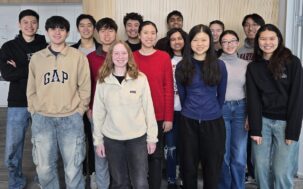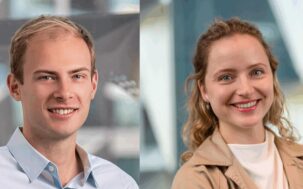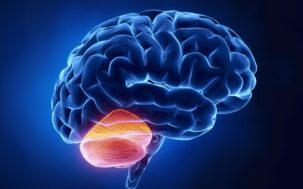Kempner Institute Announces Recipients of 2025 Graduate Fellowships
Thirteen students awarded fellowships to undertake graduate work that advances the study of intelligence in natural and artificial systems

This year’s fellowship recipients include six incoming and seven continuing graduate students enrolled across five Harvard graduate programs.
Cambridge, MA – The Kempner Institute for the Study of Natural and Artificial Intelligence today announced the names of 13 students chosen as the incoming 2025 cohort of Kempner Graduate Fellows.
The 2025 recipients of the Kempner graduate fellowship are: Alex Cai, Jonathan Geuter, Cristine Kalinski, Aayush Karan, Hang Le, Mary Letey, Sarah Liaw, Clara Mohri, Pranav Nair, Jorin Overwiening, Nianli Peng, Madison Sneve and Nathan Wu.
“We are thrilled to welcome our newest cohort of graduate fellows, who are poised to explore some of the most pressing topics in the field of intelligence research and promise to contribute to the Institute’s breadth and depth of research and innovation.”
Denise Yoon, Associate Director for Educational Programs
This year’s fellowship recipients include six incoming and seven continuing graduate students enrolled across five Harvard graduate programs, and will bring the Kempner’s total roster of graduate fellows to 50.
The Kempner graduate fellowship supports Ph.D. students in a wide variety of departments and labs across the University, all pursing research that aligns with the Kempner’s core mission to advance the study of natural and artificial intelligence. This year’s fellowship recipients will be enrolled in Harvard Ph.D. programs in the fields of Computer Science, Applied Math, Physics, Quantum Sciences & Engineering and Neuroscience.
Kempner graduate fellows receive mentorship, access to the Kempner’s computing resources and facilities, and funding up to and including the 4th year of graduate school.
Meet the Incoming 2025 Kempner Graduate Fellows
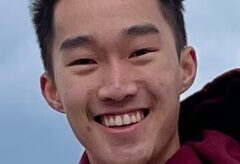
Alex Cai, Incoming Ph.D. Student, Computer Science
“Humans don’t acquire language through next token prediction. Why has this data-hungry method become the standard for artificial models of language? Can’t we do better?”

Jonathan Geuter, Ph.D. Student, Applied Math
“I’m interested in using ideas from optimal transport to develop new and efficient machine learning algorithms. I’m also excited about language models, in particular finding more efficient test-time methods.”
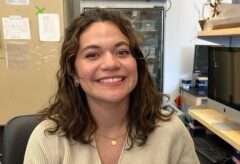
Cristine Kalinski, Ph.D. Student, Neuroscience
“I use convolutional neural networks to study how neural adaptation and thalamocortical feedback shape perception in both artificial systems and the primate brain.”

Aayush Karan, Ph.D. Student, Quantum Sciences and Engineering
“My research seeks to develop algorithmic techniques that solve complex inference problems on a diverse array of modalities including reasoning, reward-optimal synthetic generation, and failure prediction.”
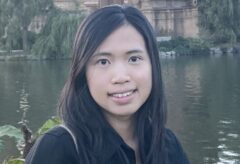
Hang Le, Incoming Ph.D. Student, Computer Science
“I’m interested in building embodied agents that can learn to understand and interact with the physical world, and have sufficient sensorimotor skills to follow complex instructions and adapt to diverse environments.”

Mary Letey, Ph.D. Student, Applied Math
“I am interested in describing neural computation in the context of structured data and tasks, using tools from statistical physics and geometry.”
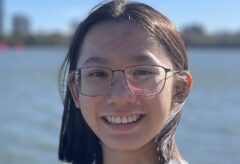
Sarah Liaw, Incoming Ph.D. Student, Computer Science
“My research aims to develop scientifically-grounded foundational principles for AI systems that can build rich world-models, reason compositionally and make safe decisions.”
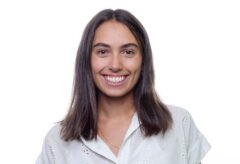
Clara Mohri, Ph.D. Student, Computer Science
“My research interests are in machine learning, in particular efficient learning algorithms with strong theoretical guarantees.”
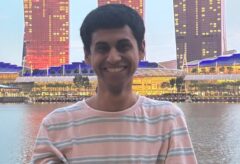
Pranav Nair, Incoming Ph.D. Student, Computer Science
“I am excited to design LLM architectures and algorithms that maximally use compute power, improving both throughput and quality of the generated responses.”
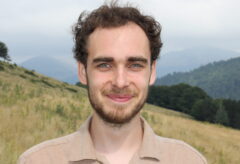
Jorin Overwiening, Incoming Ph.D. Student, Physics
“My work combines computational neuroscience, machine learning, and physics to build brain-inspired models and uncover quantitative insights into how natural and artificial intelligence learn and adapt.”
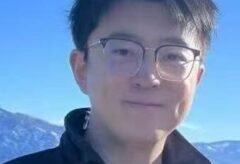
Nianli Peng, Ph.D. Student, Applied Math
“I develop reinforcement-learning algorithms that are both sample-efficient and compute-efficient, with a special focus on scaling policy-optimization methods for training large language models.”
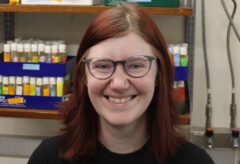
Madison Sneve, Ph.D. Student, Neuroscience
“By combining the toolset of computational neuroscience with experiments that highlight individual variability, I hope to understand the neurobiological mechanisms of behavioral variability.”
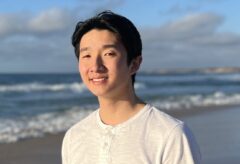
Nathan Wu, Incoming Ph.D. Student, Neuroscience
“I aim to understand how biological systems self-organize to support flexible computation, and how developmental and evolutionary processes shape their functional capabilities.”
About the Kempner
The Kempner Institute seeks to understand the basis of intelligence in natural and artificial systems by recruiting and training future generations of researchers to study intelligence from biological, cognitive, engineering, and computational perspectives. Its bold premise is that the fields of natural and artificial intelligence are intimately interconnected; the next generation of artificial intelligence (AI) will require the same principles that our brains use for fast, flexible natural reasoning, and understanding how our brains compute and reason can be elucidated by theories developed for AI. Join the Kempner mailing list to learn more, and to receive updates and news.
PRESS CONTACT:
Deborah Apsel Lang | (617) 495-7993
kempnercommunications@harvard.edu




